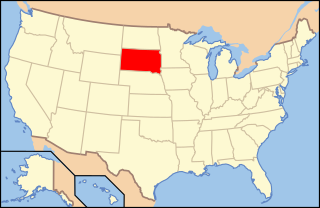
The Americans with Disabilities Act of 1990 or ADA is a civil rights law that prohibits discrimination based on disability. It affords similar protections against discrimination to Americans with disabilities as the Civil Rights Act of 1964, which made discrimination based on race, religion, sex, national origin, and other characteristics illegal, and later sexual orientation and gender identity. In addition, unlike the Civil Rights Act, the ADA also requires covered employers to provide reasonable accommodations to employees with disabilities, and imposes accessibility requirements on public accommodations.
The Lambda Legal Defense and Education Fund, better known as Lambda Legal, is an American civil rights organization that focuses on lesbian, gay, bisexual, and transgender (LGBTQ) communities as well as people living with HIV/AIDS (PWAs) through impact litigation, societal education, and public policy work.
Student rights are those rights, such as civil, constitutional, contractual and consumer rights, which regulate student rights and freedoms and allow students to make use of their educational investment. These include such things as the right to free speech and association, to due process, equality, autonomy, safety and privacy, and accountability in contracts and advertising, which regulate the treatment of students by teachers and administrators. There is very little scholarship about student rights throughout the world. In general most countries have some kind of student rights enshrined in their laws and proceduralized by their court precedents. Some countries, like Romania, in the European Union, have comprehensive student bills of rights, which outline both rights and how they are to be proceduralized. Most countries, however, like the United States and Canada, do not have a cohesive bill of rights and students must use the courts to determine how rights precedents in one area apply in their own jurisdictions.

The U.S. Equal Employment Opportunity Commission (EEOC) is a federal agency that was established via the Civil Rights Act of 1964 to administer and enforce civil rights laws against workplace discrimination. The EEOC investigates discrimination complaints based on an individual's race, color, national origin, religion, sex, age, disability, genetic information, and retaliation for participating in a discrimination complaint proceeding and/or opposing a discriminatory practice.

Estate of Rodriquez v. Drummond Co., 256 F. Supp. 2d 1250, was a lawsuit filed in the United States District Court for the Northern District of Alabama by relatives of dead relatives that were employees of Drummond Company.

Wright v. Houston Independent School District, 486 F.2d 137 was an American legal case brought by a parent of a student in the Houston Independent School District in Houston, Texas suing on behalf of her daughter and fellow students to prevent the district from teaching evolution as fact and without reference to alternative theories. The plaintiffs claimed evolutionary theory endorsed a secularist religious view, and argued the school's failure to incorporate the teaching of a particular religious alternative to evolutionary theory as derived from the Bible's creation account held that religious view up to ridicule and contempt. To allow evolution while avoiding creationism was unconstitutional, the suit claimed, because it advanced one particular sectarian view over another. The plaintiffs maintained that the school's evolutionary teaching constituted "the establishment of a sectarian, atheistic religion" and was an interference of their own rights to the free exercise of religion as guaranteed by the Establishment clause in the First Amendment to the Constitution of the United States. The case is one of a series of legal battles over the teaching of evolution in American public schools, and the first to be initiated by opponents of such teaching.
In employment law, a bona fide occupational qualification (BFOQ) (US), bona fide occupational requirement (BFOR) (Canada), or genuine occupational qualification (GOQ) (UK) is a quality or an attribute that employers are allowed to consider when making decisions on the hiring and retention of employees—a quality that when considered in other contexts would constitute discrimination in violation of civil rights employment law. Such qualifications must be listed in the employment offering.
William Wayne Justice was a United States district judge of the United States District Court for the Eastern District of Texas.

Kathoey or katoey is a term used by some people in Cambodia, Laos, and Thailand, whose identities in English may be best described as transgender women in some cases, or effeminate gay men in other cases. These people are not traditionally transgender, but are seen as a third sex. Transgender women in Thailand mostly use terms other than kathoey when referring to themselves, such as phuying. A significant number of Thai people perceive kathoey as belonging to a separate sex, including some transgender women themselves.

Lesbian, gay, bisexual, transgender, and queer (LGBTQ) people in the U.S. state of Ohio enjoy most of the same rights as non-LGBTQ people. Same-sex sexual activity has been legal in Ohio since 1974, and same-sex marriage has been legally recognized since June 2015 as a result of Obergefell v. Hodges. Ohio statutes do not address discrimination on account of sexual orientation and gender identity; however, the U.S. Supreme Court's ruling in Bostock v. Clayton County established that employment discrimination against LGBTQ people is illegal in 2020. In addition, a number of Ohio cities have passed anti-discrimination ordinances providing protections in housing and public accommodations. Conversion therapy is also banned in a number of cities. In December 2020, a federal judge invalidated a law banning sex changes on an individual's birth certificate within Ohio.
Price Waterhouse v. Hopkins, 490 U.S. 228 (1989), was a landmark decision of the US Supreme Court on the issues of prescriptive sex discrimination and employer liability for sex discrimination. The employee, Ann Hopkins, sued her former employer, the accounting firm Price Waterhouse. She argued that the firm denied her partnership because she did not fit the partners' idea of what a female employee should look and act like. The employer failed to prove that it would have denied her partnership anyway, and the Court held that constituted sex discrimination under Title VII of the Civil Rights Act of 1964.

Lesbian, gay, bisexual, transgender, and queer (LGBTQ) people in the U.S. state of South Dakota may face some legal challenges not experienced by non-LGBTQ residents. Same-sex sexual activity is legal in South Dakota, and same-sex marriages have been recognized since June 2015 as a result of Obergefell v. Hodges. State statutes do not address discrimination on account of sexual orientation or gender identity; however, the U.S. Supreme Court's ruling in Bostock v. Clayton County established that employment discrimination against LGBTQ people is illegal under federal law.

Lesbian, gay, bisexual, transgender, and queer (LGBTQ) people in the U.S. state of Nebraska may face some legal challenges not experienced by non-LGBTQ residents. Same-sex sexual activity is legal in Nebraska, and same-sex marriage has been recognized since June 2015 as a result of Obergefell v. Hodges. The state prohibits discrimination on account of sexual orientation and gender identity in employment and housing following the U.S. Supreme Court's ruling in Bostock v. Clayton County and a subsequent decision of the Nebraska Equal Opportunity Commission. In addition, the state's largest city, Omaha, has enacted protections in public accommodations.

Glenn v. Brumby et al., 724 F. Supp. 2d 1284, aff'd, 663 F.3d 1312, is an American federal court case relating to the rights of transgender people. The case involved Vandy Beth Glenn, a transgender woman living in Georgia, who was dismissed from her job as a legislative editor at the Georgia General Assembly in 2007 on informing her supervisor, Sewell Brumby, of her transgender status.

LGBT employment discrimination in the United States is illegal under Title VII of the Civil Rights Act of 1964; employment discrimination on the basis of sexual orientation or gender identity is encompassed by the law's prohibition of employment discrimination on the basis of sex. Prior to the landmark cases Bostock v. Clayton County and R.G. & G.R. Harris Funeral Homes Inc. v. Equal Employment Opportunity Commission (2020), employment protections for LGBT people were patchwork; several states and localities explicitly prohibit harassment and bias in employment decisions on the basis of sexual orientation and/or gender identity, although some only cover public employees. Prior to the Bostock decision, the Equal Employment Opportunity Commission (EEOC) interpreted Title VII to cover LGBT employees; the EEOC determined that transgender employees were protected under Title VII in 2012, and extended the protection to encompass sexual orientation in 2015.
The maternal wall is a term referring to stereotypes and various forms of discrimination encountered by working mothers and mothers seeking employment. Women hit the maternal wall when they encounter workplace discrimination because of past, present, or future pregnancies or because they have taken one or more maternity leaves. Women may also be discriminated against when they opt for part-time or flexible work schedules. Maternal wall discrimination is not limited to childcare responsibilities. Both men and women with caregiving responsibilities, such as taking care of a sick parents or spouse, may also result in maternal wall discrimination. As such, maternal wall discrimination is also described as family responsibilities discrimination. Research suggests that the maternal wall is cemented by employer stereotypes and gender expectations.
Title IX of the United States Education Amendments of 1972 prohibits discrimination "on the basis of sex" in educational programs and activities that receive financial assistance from the federal government. The Obama administration interpreted Title IX to cover discrimination on the basis of assigned sex, gender identity, and transgender status. The Trump administration determined that the question of access to sex-segregated facilities should be left to the states and local school districts to decide. The validity of the executive's position is being tested in the federal courts.
The legal and regulatory history of transgender and transsexual people in the United States begins in the 1960s. Such legislation covers federal, state, municipal, and local levels, as well as military justice. It reflects broader societal attitudes which have shifted significantly over time and have impacted legislative and judicial outcomes.
R.G. & G.R. Harris Funeral Homes Inc. v. Equal Employment Opportunity Commission, 590 U.S. ___ (2020), is a landmark United States Supreme Court case which ruled that Title VII of the Civil Rights Act of 1964 protects transgender people from employment discrimination.

Wilson v. Southwest Airlines Co., 517 F. Supp. 292, is a US employment discrimination law case concerning bona fide occupational qualifications. Title VII of the Civil Rights Act of 1964 is a federal law that prohibits employment discrimination based on race, color, religion, sex, or national origin. The law contains an exception for bona fide occupational qualifications, allowing businesses to hire on the basis of religion, sex, or national origin in instances where it is a qualification reasonably necessary for their operations. Bona fide occupational qualifications are qualities or attributes that employers are allowed to consider when hiring employees, which would otherwise be considered illegal discrimination in other circumstances.











